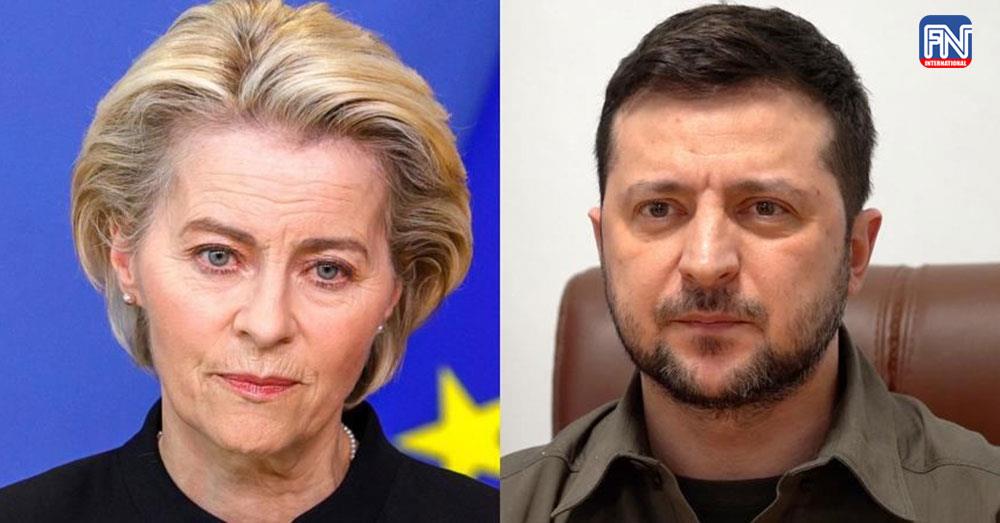KYIV, June 11 (AFP) - European Union chief Ursula von der Leyen visited Ukraine on Saturday (June 11) to discuss with President Volodymyr Zelensky his country's bid to get candidacy status to join the EU.
While Kyiv has been pushing for rapid admission into the EU, officials and leaders in the bloc have cautioned that the road to membership is a long one, which can take years or decades.
Ukraine sees the prospect of joining the EU as a way of reducing its geopolitical vulnerability, which has been exposed by Russia's war inside its borders.
"With President Zelensky, I will take stock of the joint work needed for reconstruction and of the progress made by Ukraine on its European path," Ms von der Leyen tweeted on arrival in Kyiv.
She told a group of journalists travelling with her, including Agence France-Presse, that the discussions "will feed into our assessment" of Ukraine's readiness to be considered a candidate country to begin lengthy negotiations, including needed reforms.
That assessment by her commission will be presented "soon", she said.
EU commissioners and officials are expected to pore over Ukraine's bid next week, ahead of a June 23 to 24 summit that will likely take up the matter.
Ms Von der Leyen's trip to Kyiv was her second since the Russian invasion in late February. Her last one, on April 8, was to hand Mr Zelensky a questionnaire his officials needed to fill out to provide details that would help inform the European Commission's opinion it has to give to the European Council, representing the EU's 27 member states. On that April visit, Ms von der Leyen said "Ukraine belongs to the European family".
However, some EU countries have expressed wariness about giving Ukraine a speeded-up candidacy process.
They point out Ukraine's problems with corruption documented before the war, and the fact that other countries such as North Macedonia and Albania were already further along the candidacy path.
The European Union is helping channel weapons to Ukraine through a €2 billion (S$2.9 billion) fund and has given it more than €700 million in aid and in-kind assistance since the invasion.
It has also slapped six rounds of sanctions on Russia, including against its coal and oil sent to the bloc, and against oligarchs close to President Vladimir Putin and media outlets deemed to be propagandising the war.
EU countries are hosting nearly five million Ukrainian refugees who have fled the war in their country.





